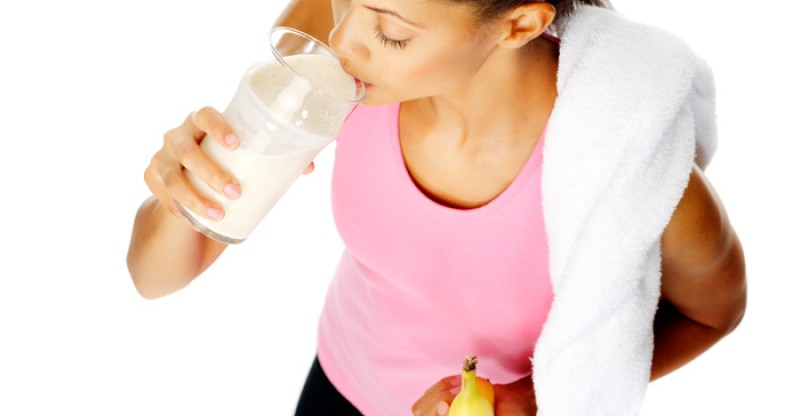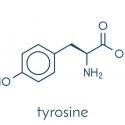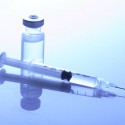How Protein Shakes Can Help with Weight Loss
Can Protein Shakes Help You Lose Weight?
Are protein shakes a new alternative for losing weight?
Are they a proven way to take off that belly fat?
Well, to put it simply – they are.
They pack plenty of protein that allows you to function throughout the day, including working, eating healthy and finding time to exercise.
So, how exactly do protein shakes help you lose weight?
And are they worth the money of a working mother?
Well, this article contains plenty of information to help you find out.
What are Protein Shakes?
Protein shakes are drinks mixed with protein powder, water and oftentimes additional ingredients.
They’re used when high-quality protein foods aren’t really available.
They’re a great supplement for people who need more protein intake.
Here are some of the most popular protein powder types:
- Whey Protein. Whey is the liquid that remains from the cheese-making process after the curds (cheese, a.k.a. casein protein) are strained. It contains all the essential amino acids (1).
- Casein Protein. A dairy-based product that also contains all the essential amino acids (2).
- Soy Protein. A plant-based product from soybeans that is cholesterol free, low in saturated fat and beneficial for your health. Studies have shown that soy protein can improve your diet and help prevent obesity (3).
- Hemp Protein. This type is similar to soy protein and others derived from beans or legumes. It contains all the essential amino acids however it is limited in the amino acid lysine (4).
- Rice Protein. A plant-based protein that is high in cysteine and methionine, but low in lysine.
- Pea Protein. A plant-based protein that is low in amino acids cysteine and methionine (5).
Benefits of Protein Shakes
Reduce Hunger
So, you want to lose weight.
And, you’ve decided that buying a couple of protein powder containers will help.
As soon as you drink a glass before starting the long day ahead of you, you realize, “Hey – I’m not so hungry.”
That’s what protein powder does.
One of the great things about protein shakes is that they reduce your hunger or appetite; they make it easy for you to lose weight.
So, how do they decrease your cravings or hunger for a full meal?
Well, here’s one thing about protein – it increases levels of appetite-reducing hormones (such as GLPI, PYY, and CCK) while decreasing levels of the hunger hormone ghrelin better than and for longer periods of time than carbohydrates (6,7,8,9,10).
In addition, protein helps you feel satisfied and full for longer (11,12).
In fact, one study revealed that participants consumed up to 135 fewer calories at lunch due to a high-protein breakfast (13).
Another study tested the effect of a high-protein afternoon snack vs. a high-fat snack on twenty healthy women.
The result? Over the course of the testing, the high-protein afternoon snack improved appetite control and substantially lowered food intake among the women (14).
As shown in these study scenarios, simply swapping a high-fat snack or junk food option for protein can seriously improve your diet in many ways.
And one of these ways is losing weight.
However, make sure not to eat too much protein.
Consuming an excess amount of protein (greater than 35 percent of your daily calories) can lead to extra calories in your diet, and even worse – cause several health issues (15).
A good amount of protein to consume from your shake is 20 grams.
However, if you’re one of those people who need the extra protein for working out constantly, by all means – consume all the protein you need.
But, if you don’t know how much protein to consume – read on for a few guidelines.
Help Burn Calories
It may seem frustrating to watch your child run around with endless energy as a number of calories are burned in his (or her) system.
But, you can’t escape it.
As we get older, our metabolism slows down and it takes much more effort than a child’s to burn calories.
But, protein shakes can help you increase your metabolism.
A high-protein diet will allow you to burn more calories every day (16).
So, how does protein assist with increasing your metabolism?
Well, protein – especially with the help of strength training, will help you build muscle.
Muscle burns more calories than fat.
In addition, protein can increase your metabolism due to the thermic effect of food or TEF.
This is known as the increase in metabolic rate that occurs after digesting food.
Help You Get Rid of Belly Fat
Your gut. It stubbornly sits there in the middle of your stomach.
You may be displeased with how it looks, but don’t fret.
Protein shakes can help you get rid of some of the belly fat from your gut.
It’s no surprise that protein shakes can help you get rid of belly fat.
Researchers have come to the conclusion that a high-protein diet will help you get rid of fat – especially the fat from your gut (better referred to as your belly area) (17).
One study has revealed the benefits of simply having protein comprise 25 percent of the calories in your diet.
Within a year, participants with 25 percent protein intake lost 10 percent more belly fat than those who were eating half of that amount (18).
Prevent Muscle Loss
When you go on diets, losing weight can slow down your metabolism and cause you to lose muscle mass.
With protein shakes, you can prevent this.
A high-protein diet, combined with strength training, can allow you to gain muscle and increase metabolism.
In one study, when participants had a diet with 36 percent protein, their metabolism decreased less than when the diet had 15 percent protein (19).
In addition, if you’re working out or doing strength training – make sure you consume protein before and after the workout.
Sometimes, it’s also recommended that you take protein during the workout.
You’ll see that energy bites or protein bars are always on athlete’s to-do list as they prepare for their next workout.
As for protein shakes, half of a glass (or more) of protein shake will ensure that you get the best out of your workout.
And, afterward, those fatigued muscles will recover more quickly.
It’s not uncommon to see commercials for protein shakes with bodybuilders, NFL stars, and basketball players.
This may seem another far-fetched advertisement, but you can believe this ad!
Protein shakes can actually help you gain muscle.
It’s proven – not by the celebrities, of course, but with research.
Prevent Weight Re-Gain
It’s very important that you lose weight and make it to your goal, but what happens after you’ve reached your goal?
What happens after you’ve successfully completed your high-protein diet and weight-loss plan?
It’s not over!
You don’t want to gain the weight all over again and go back to “Step 1,” where you had the belly fat.
In fact, you should include protein shakes in your everyday diet. Why?
They can help you prevent gaining back those pounds.
You worked so hard to lose the weight; don’t throw your efforts away.
Studies have revealed how protein intake can prevent you from gaining weight again.
One study revealed that participants who were given more protein were able to lose more weight and maintain more of the weight loss.
The normal-protein group regained 23% of their lost weight, while the high-protein group regained only 9% (20).
Taste Good
What’s another thing to point out about protein shakes? They taste great!
Provided that you don’t end up with funny-tasting protein powder, expect a tasty glass.
One of the great things about including protein shakes in your daily diet is that it’s so easy to fall in love with them.
Simply mix your protein powder – which can be vanilla, strawberry, chocolate, fruit mix, chai, and many others – with a cold beverage.
To make your mouth-watering glass of goodness, mix the protein powder with milk or ice and water, and then toss it in the blender or shake it vigorously.
Make sure it’s completely mixed so you can enjoy your drink to its fullest.
Which Protein Powders are the Best?
As revealed in the introduction, there are several types of protein powders, and they each serve different purposes.
But, which one is the best?
Researchers have found that “whey protein is more satiating in the short term, whereas casein is more satiating in the long term.” (21,22)
But, simply having a faster (but shorter) hunger-reducing effect does not mean whey protein will help you lose more weight.
To emphasize, studies have revealed whey, soy, rice or egg protein supplements all resulted in the same amount of fat loss (23,24).
However, one great point to take in is that whey, soy, and casein protein contain all the essential amino acids, as opposed to hemp, rice or pea protein (though rice and pea proteins combined covers them all).
This can be a reason to choose those type of protein powders instead, although whether or not the powder contains all the amino acids doesn’t make much of a difference.
Unless protein shakes are your only source of protein (which shouldn’t be the case), the type of protein powder you pick is all up to you.
These types of protein powders all have the same basic purpose – helping you lose fat.
So, that being said – don’t stress too much over the protein powders.
Dosage and Side Effects
You should start out with 1 scoop of protein powder daily.
Drink a shake either before or in place of a meal.
As you progress and learn more information, you’ll find out how much you should drink or which protein powder to drink.
For instance, you may notice that drinking soy protein over whey protein (for example) affects your diet or stomach.
Usually, the recommended dosage of protein powder is on the side label of the product.
Some products recommend 1 scoop before a meal while others recommend 2 scoops after a workout.
Studies have shown that total protein intake of 0.5 to 1 gram per pound of your weight daily provides the best results of weight loss.
As for side effects, watch out for bloating, diarrhea, cramps, and gas if you’re lactose intolerant or you’re consuming whey or casein protein.
Remember – whey and casein protein are dairy products.
So, to avoid this – simply switch to your other options: rice, hemp, pea or soy protein.
The amount of protein in your diet should be 25 to 35 percent of your calorie intake.
As shown previously, studies show that 25 percent of protein intake has helped participants lose weight and maintain that weight loss.
Also, if you’re concerned that you’re not getting enough protein on a daily basis, talk to your doctor before you start taking protein shakes.
He or she may even give you a good recommendation for products and the number of grams you should be consuming.
Also, if you’re actually a bodybuilder or you’re working out constantly, take a bit more protein than what’s recommended.
Why? When you exercise, your muscles and body become fatigued.
As mentioned before, protein shakes also serve as a recovery drink for these aching or sore parts of your body.
Plus, if you’re working out constantly, you’re burning tons of calories and you’ll need that protein for recovery and energy.
Conclusion
This article gave you loads of information on the types of protein powders, the benefits of protein shakes and how to produce your own delicious glass.
There are countless protein powders to choose from online or in stores, but don’t stress too much.
There’s not much difference in cost between the protein powers.
In fact, a typical container will cost about $20-30.
Don’t bother paying a ridiculous amount of anything more than $50 – you can get everything you need with cheaper and just-as-effective protein powder brands and products.
And another thing? You don’t have to consume protein shakes.
In fact, some people don’t need extra supplements; they get all the protein or nutrients from their diet already.
But, if you find it difficult to eat enough protein to help you lose weight – go ahead and try it!
It may be worth the buy.
FDA Compliance
The information on this website has not been evaluated by the Food & Drug Administration or any other medical body. We do not aim to diagnose, treat, cure or prevent any illness or disease. Information is shared for educational purposes only. You must consult your doctor before acting on any content on this website, especially if you are pregnant, nursing, taking medication, or have a medical condition.
HOW WOULD YOU RATE THIS ARTICLE?







Which protein powder type is the most efficient?
Should I drink protein shakes all the time or I need to do breaks?
Will I gain more weight if I stop drinking protein shakes after reaching the desired weight?
I am always fascinated by the debate around protein shakes. Many people love them and they can certainly work for weight loss. Yet, other people say that they’re unhealthy and a waste of time.
I’ve always thought that it depends on the person. If you are short on time and want something simple, protein shakes do make sense. There are also some high quality brands out there – ones that offer considerable nutrients for a decent price.
I am using protein shakes regulary but I cannot confirm the fact of losing the belly fat. But since I am taking it, my muscles are growing faster.